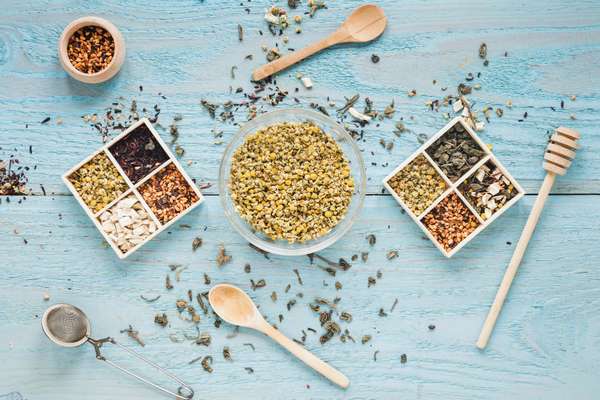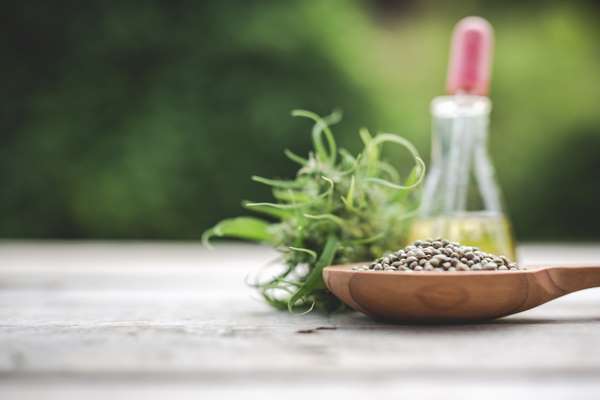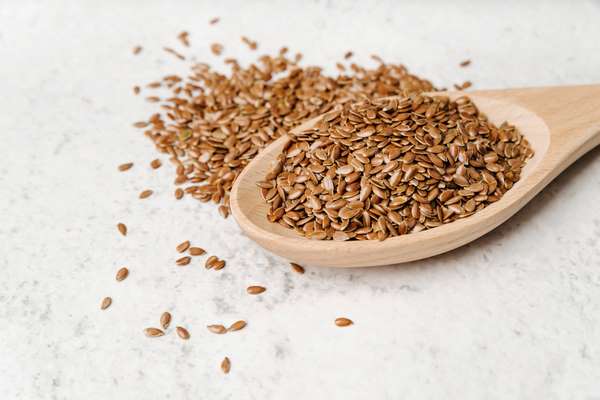Hemp seeds and flax seeds are considered popular superfoods due to their high content of healthy fats, protein, and various micronutrients. Flax ( Linum usitatissimum) has long been used as a natural remedy for constipation due to its high fibre content. Hemp seeds come from the Cannabis sativa plant and do not contain tetrahydrocannabinol (THC), the component responsible for marijuana’s psychoactive effects.

Both types of seeds are often included in various nutrition plans (DASH, Mediterranean diet, vegetarianism) because of their high nutrient content and heart-health benefits. Scientists believe that nuts and seeds can support cardiovascular health through a combination of healthy fats, vitamins, minerals, and phytosterols.
In this article, we’ll examine the chemical composition of hemp and flax seeds, their benefits for the body, and how and when they are best consumed.
Comparison of nutritional value
Below are the nutritional values of three tablespoons of hemp seeds and ground flax seeds.
| Nutritional value | Hemp seeds (3 tbsp) | Ground flax seeds (3 tbsp) |
|---|---|---|
| Calories | 166 | 165 |
| Protein | 9,48 г | 5,64 г |
| Total fat | 14,6 г | 13,05 г |
| Monounsaturated fats | 1,62 г | 2,328 г |
| Polyunsaturated fats | 11,4 г | 8,88 г |
| Carbohydrates | 2,6 г | 8,94 г |
| Fibre | 1.2 g (4% of the daily value) | 8.43 g (30% of the DV) |
| Iron | 2.38 mg (13% of the dietary value) | 1.77 mg (10% of the dietary value) |
| Magnesium | 210 mg (50% of the DV) | 121.2 mg (29% of the DM) |
| Phosphorus | 495 mg (40% of the DM) | 198.3 mg (16% of the DV) |
| Zinc | 2.97 mg (27% of the RDA) | 1,341 mg (12% of the DN) |
| Manganese | 2.28 mg (99% of the LEL) | 0.765 mg (33% of the DV) |
| Thiamine (vitamin B1) | 0.384 mg (32% of the DV) | 0.507 mg (42% of the DV) |
| Vitamin B6 | 0.18 mg (11% of the DV) | 0.147 mg (9% of the LOD) |
Analysis.
- Hemp seeds are higher in protein (about 9.48 g per 3 tbsp) and lower in carbohydrates.
- Flaxseeds are high in fibre (8.43 g per 3 tbsp), about a third of most people’s daily requirements.
- Both seeds contain healthy fats, a wide range of minerals, and B vitamins. Hemp seeds are rich in magnesium and phosphorus and contain almost 100% of the daily manganese requirement.

Benefits of eating hemp seeds
- Rich in healthy fats and plant compounds. Hemp seeds contain polyphenols and terpenoids that can help reduce inflammation and protect cells from damage.
- Hemp seeds have a high protein content. At around 9.48 g per three tablespoons, they are a valuable source of protein for vegetarians and vegans.
- Various forms. Hemp can be found in the form of flour (gluten-free) added to pasta, as well as in the form of hemp milk, a healthy alternative to cow’s milk.
Possible risks
- THC contamination. Some batches of seeds may contain higher levels of tetrahydrocannabinol, which is not allowed by law. Choose products from trusted manufacturers.
- Allergic reactions. Skin rashes or respiratory problems (e.g., asthma) may occur in rare cases.
Benefits of eating flax seeds
- A source of fibre. Just three tablespoons provide up to 30% of the daily fibre requirement. It is essential for normal bowel function and heart health.
- Omega-3 fats. Up to 70% of the fat in flax consists of alpha-linolenic acid (ALA), which is good for the heart.
- Blood sugar control. Some studies suggest that flaxseed may help people with prediabetes and type 2 diabetes improve their sugar and insulin levels.
- Reducing the risk of cardiovascular disease. Flaxseed consumption can help lower triglycerides and inflammatory markers in coronary heart disease.
- Flax can help with weight loss. There is evidence that it can have a positive effect on body weight by reducing body mass index (BMI) and waist size.

Possible risks
- Raw or unripe seeds. Such flaxseeds may contain toxic compounds, so it is better not to consume them.
- Effect on pregnancy. Some evidence suggests a possible link between the use of flaxseed oil in the second or third trimester of pregnancy and an increased risk of preterm birth.
- Digestive problems. The high fibre content can cause discomfort if you do not drink enough water. In rare cases, it can lead to intestinal obstruction.
- Allergies. Flax can cause itching, rashes or even anaphylaxis in people with individual intolerance.
Taste and uses
- Hemp seeds are usually sold hulled. They are cream-coloured, delicate, and have a pleasant nutty aftertaste.
- Flax seeds can be brown or golden. Whole seeds are complex, so they are ground more often to help the body absorb more nutrients.
Use in cooking
- Add to cereals, muesli, salads and yoghurts.
- Mix with fruit and milk in smoothies.
- Add to baked goods (bread, pancakes, muffins).
- Use as a garnish for soups and stews.
- Make homemade granola or energy bars.
Flaxseed “egg”
Ground flaxseed can replace eggs in baking: mix 1 tbsp of flaxseed with 3 tbsp of water, let it thicken, and then add it to the dough.
Storage
To ensure the seeds retain their properties, keep them in an airtight, calm, dark container. You can put the seeds in the fridge or freezer for maximum quality preservation.
Which is healthier?
Both types of seeds are incredibly healthy but have different benefits:
- Hemp seeds are ideal for those who want to increase their vegetable protein intake and get an extra dose of magnesium, phosphorus and manganese.
- Flaxseeds are excellent for maintaining healthy digestion, lowering cholesterol and getting enough omega-3 fats and fibre.
In general, including flax and hemp in your diet is a great way to enrich your diet with healthy fats, proteins, vitamins, and minerals. However, you should consult a specialist before making significant changes to your diet, taking into account possible allergies or individual restrictions (especially during pregnancy or in case of serious illnesses).
Bottom line.
Both hemp seeds and flaxseeds are valuable nutrients for heart health, digestion and overall well-being. If you need to enrich your diet with protein, choose hemp, and if you want to focus on fibre and omega-3s, prefer flax. However, there’s no need to limit yourself to one: both seeds can be easily added to everyday meals and provide a wide range of health benefits.






